Industry | Where does Toyota's Intelligent Driving go from here?
 Kevin WongApr 11, 2024, 10:42 AM
Kevin WongApr 11, 2024, 10:42 AM
The battlefield of the intelligent driving revolution for automobiles is not in the North American and European markets but in the Chinese market. Companies like Huawei, XPeng, and NIO have all launched their intelligent driving solutions. In contrast, Tesla seems somewhat lonely. So what are the goals of traditional car brands? Where have VW and Toyota headed to?
Recently, the topic of Toyota's intelligent driving suddenly heated up in China. It is said that Toyota will cooperate with Huawei to achieve its intelligent solution. But please note! This is just a topic, which means that there has not been an official formal confirmation. The fact is not clear, but there is no doubt that Toyota's intelligent development has indeed come to a key crossroads. Where should Toyuta go? I think it is crucial for Toyota.
The industry reporter from the PCauto China Website has further explored this topic. Let's see what he has to say.
The following is the complete original content:
“Only when a self-driving car has defeated a human driver in a marathon road race will Toyota begin to develop self-driving cars.”
Ten years ago, Toyota Akio shot an arrow at autonomous driving, and now this arrow is hitting the soul of Toyota cars.
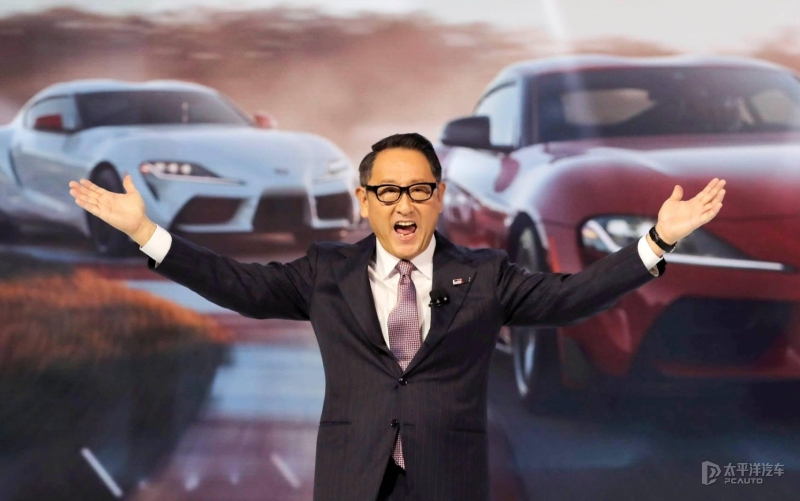
Recently, Tencent News learned from people familiar with the matter that Toyota's global car intelligent driving solution will use the "Toyota + Huawei + Momenta" tripartite joint solution mode. It is said that Toyota will adopt Huawei's hardware solution for its vehicles, and the software algorithm will be provided by the domestic autonomous driving unicorn Momenta.
From this point of view, Toyota seems to have chosen Huawei but did not fully choose Huawei. However, Toyota has handed over the soul of intelligent driving to Chinese companies.
I. Huawei and Momenta both claim that it is inconvenient to disclose
Toyota has always given the impression to the outside world that it seems more like a fuel vehicle defender, and it is not active in electrification and intelligence. Toyota Akio has even repeatedly criticized electrification.
However, with the rise of intelligence worldwide, especially after achieving continuous success in the Chinese market, Toyota is also accelerating intelligence. A few days ago, it was reported that Toyota has pointed to several Chinese suppliers and will launch advanced intelligent driving functions as soon as the end of this year and the beginning of next year in the Chinese market, as well as the end of 2025 and the beginning of 2026 in the global market models. It is reported that Toyota will announce important cooperation with a domestic major factory during the Beijing Auto Show.
Just when the outside world was curious about who this factory was, Sun Shaojun, a car fan, revealed in the live broadcast that one of the three Japanese cars confirmed that they would adopt Huawei's smart driving system.

So, is the news circulating on the Internet reliable? Will Toyota's smart driving solution adopt the 'Toyota+Huawei+Momenta' tripartite joint solution model?
On this, Pacific Auto contacted Momenta and Huawei's public relations separately. Huawei's public relations said to wait for the official notification. Momenta’s PR responded that she first heard the news from the media and has not yet received any notification, so she cannot accept an interview, and the news released by the other party shall prevail.
Although the official did not give a clear answer, the industry generally believes that Toyota can't carry the "Hua" plan on global models, and it is more likely that Toyota will distinguish between Chinese models and global models, where Chinese models adopt 'Toyota+Huawei+Momenta', and global models adopt 'Toyota+Valeo+Momenta'.
At present, Huawei has three types of cooperation models with car companies, namely the parts supply model, the HI model (Huawei Inside), and the smart choice car model (HarmonyOS Smart Travel). If the cooperation is true, the cooperation between the two will be more weighted on the supplier model. Huawei provides the hardware, and the cooperation is based on the MDC smart driving computing platform. In other words, Huawei's role in this cooperation is only a Tier 1 hardware supplier.
Although it is only a hardware supplier, because Huawei is still under U.S. sanctions. If Toyota's global models are equipped with Huawei's smart driving solution or hardware, they will likely not be able to sell in international markets such as Europe and the United States. This is unacceptable to Toyota. Therefore, it is most likely that the Chinese models will be equipped with this smart driving scheme.
However, it is worth noting that Toyota has stated that it will not comment on this cooperation. Everything has to wait for the final veil to be lifted at the Beijing Auto Show.
II. Why Huawei and Momenta?
In addition to the authenticity of the news about this cooperation, the outside world is also very curious about why Toyota chose Huawei and Momenta.
This is not the first time Toyota has collaborated with Huawei on smart technology, but it was primarily in the smart cockpit field. In March of this year, the new 9th generation Camry from GAC Toyota was launched. The car's system was jointly designed by GAC Toyota and Huawei, which was not only equipped with the mainstream Snapdragon 8155 car chip and 12+128GB storage combination but also equipped with a high-end voice recognition system. And it also supports voiceprint recognition and face ID recognition functions. In addition, the all-new Prado, which will be first launched at the Beijing Auto Show and ready for a large order, is also rumored to be introduced with Huawei's HiCar technology.

Compared to the intelligent cockpit, Huawei seems to be far ahead in the field of smart driving, such as the ADS 2.0 first launched in the boundary model, which can display NCA smart driving capabilities with or without a map, as well as functionalities in nationwide highways, overpasses, and expressways, and even urban NCA functions. Some car owners even reported a self-driving experience on rural roads – sparking a series of short video content.
In the Chinese market, it seems that the more a car model is 'Huawei', the better the sales. And Toyota considered this point.
As for Momenta, Toyota has an even deeper relationship with it. As early as March 2020, Toyota reached strategic cooperation with Momenta, announcing the provision of high-precision maps and update services based on camera vision technology, which jointly promoted the commercial landing of Toyota's Automated Map Platform (AMP) in China.
A year later, Momenta announced the completion of a total of 500 million US dollars in Series C financing. In this round of financing, Toyota participated as one of the strategic investors, becoming a shareholder. This not only provided Momenta with financial support but also deepened the cooperation between the two parties. In addition, car manufacturers and suppliers such as SAIC, General Motors, Toyota, NIO, and Bosch Venture Capital, and investment institutions such as Tencent Investment, Yunfeng Fund, Temasek, GGV Jiyuan Capital, etc. participated in Momenta's financing.

Publicly available information shows that Momenta was established in 2016, and the core team consists of scientific researchers from Tsinghua University, MIT, and Microsoft Asia Research Institute. In terms of smart driving technology, as one of the leading companies in the field of autonomous driving in China, Momenta naturally has its strengths. BYD, SAIC, General Motors, and other automakers all cooperate with Momenta. However, so far, no Toyota production products have been loaded with Momenta's smart driving products.
Of course, there are also different voices in the industry about the "Toyota + Huawei + Momenta" solution, which suggests that Momenta software plus Huawei hardware is not the best solution. This is because hardware is not the core competitiveness of Huawei ADS, but the smart driving algorithm that works nationwide is the essence. Momenta has always been building software based on the powerful Nvidia chips, but now it needs to develop a set of Huawei chips with mediocre performance, which may be challenging. Some media even say that Toyota's move is tantamount to installing a Windows system on an Apple computer, which may cause both software and hardware to fail to perform at a normal technical level.
III. Toyota is running out of time
Despite the controversy over the "Toyota + Huawei + Momenta" plan, it is clear that in the war of intelligentialization, Toyota doesn't have much time. Ouyang Minggao, an academician of the Chinese Academy of Sciences, once stated that even a 1% substitution for automotive technology can be a breakthrough. For instance, in 2016, when the market share of new energy vehicles reached 1%, the world began to shift to electric vehicles. Now, the penetration rate of intelligent cockpits and autonomous driving in China has long exceeded this figure.
Toyota has made moves in intelligentialization before, but just like its electrification, it seems to have started early and caught the late market. In 2018, Toyota embarked on large-scale investment and research in autonomous driving, with a publicly planned investment of over $22 billion. That year, Toyota, Denso, and Aisin jointly invested $2.8 billion to establish the joint venture company TRI-AD, which was responsible for the development of Toyota's in-house driving assistant and autonomous driving technologies. In January 2021, TRI-AD established a holding subsidiary, Woven Planet Holdings, and two operating subsidiaries, Woven CORE and Woven Alpha, focused on the development of autonomous driving, a new vehicle operating system, high-definition maps, and other software businesses.
In addition to developing its software, Toyota also consecutively invested $500 million and $1 billion in Uber, Grab, and other ride-hailing companies to jointly develop autonomous driving ride-sharing services. In 2021, it even spent $550 million to acquire the smart driving team of over 300 people from the ride-hailing platform Lyft. In 2023, Toyota invested $400 million in Pony.ai to research and develop L4-level autonomous driving. The same year, Toyota, together with Pony.ai and GAC, established a joint venture to support the mass production and large-scale deployment of Robotaxis.
However, after all these moves, Toyota has not yet developed its intelligent cockpit system or advanced assisted driving system.

What's even more pressing is that Japanese car companies have been retreating in China in recent years. According to Cui Dongshu, Secretary-General of the CPCA, the market share of Japanese cars in China has fallen for three consecutive years, to a historical low of 17%. Toyota, the strongest of the three major Japanese brands, saw its sales in China fall by 12.36% to 1.701 million vehicles in the previous year. The much-anticipated bZ4x and bZ3 also had dismal sales in China. With its electrification already lagging, if it falls behind in intelligentialization as well, Toyota, even as the current number one automaker in the world, might not escape the fate of the dinosaurs in the future.
IV. Conclusion: Joint Venture Car Companies Rushing to China’s Intelligent Driving Field
With the rise of China's intelligence, not only Toyota but other joint-venture brands are also actively seeking cooperation with Chinese intelligent driving companies to enhance their intelligence capabilities.
Just as the news of Toyota investing in "China" went to the rounds, SAIC Volkswagen officially announced its cooperation with DJI. The new Volkswagen Tiguan L Pro is equipped with an advanced intelligent driving solution from DJI. In fact, at the beginning of the year, FAW Volkswagen also announced that it would use the cost-around-7000-RMB 7V+100Tops inertial binocular pure visual smart driving solution from DJI on the new generation Passat. It is worth mentioning that DJI's intelligent driving solution emphasizes "Hybrid intelligence", which means that a large number of fuel vehicles can also enter the era of intelligent driving.
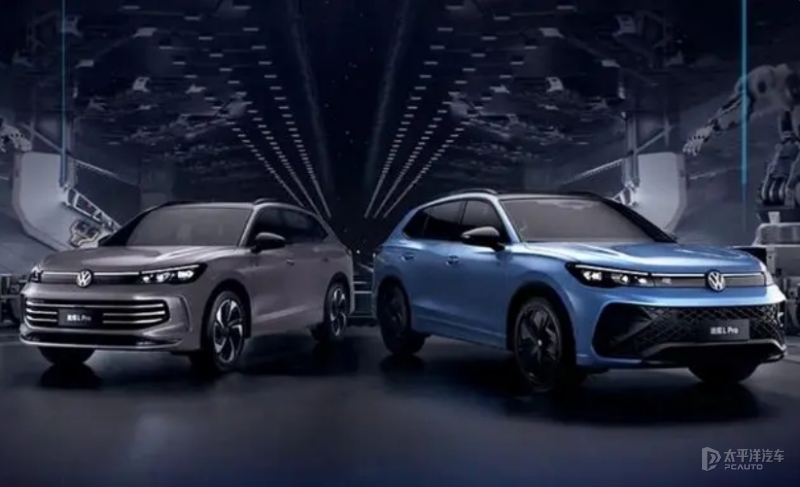
According to media reports, the Korean Hyundai motor has already issued a mass-production node to at least one Chinese supplier. It seems that whether it is German, Japanese, or Korean joint ventures, they all unanimously chose Chinese intelligent driving.
This inevitably raises the expectation that after we win the electrification war, we also hope to win the intelligence war, thereby continuing to lead this round of the automobile revolution.
If any infringement occurs, please contact us for deletion
Trending News
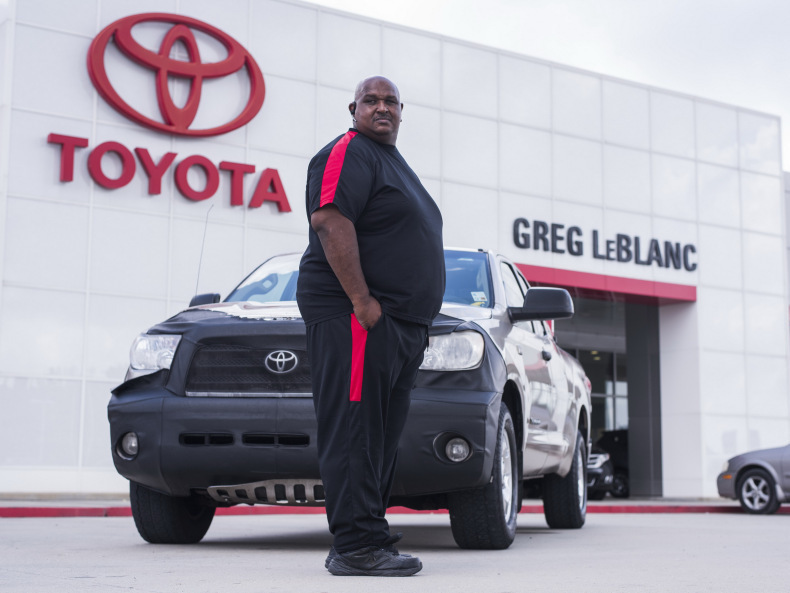
Toyota Tundra Owner Achieves the Second Million-Mile Milestone
[PCauto] The mileage often measures the quality and durability of a car, and Victor Sheppard and his two Toyota Tundra pickups have set a staggering record.With Victor Sheppard's dedication and careful maintenance of the Toyota Tundra, he successfully drove two different Tundra pickups over 1 million miles (approximately 1,609,340 kilometers).In 2007, Sheppard bought a brand new Toyota Tundra CrewMax. Over the next nine years, as a contractor, he worked across the United States, from Louisiana t
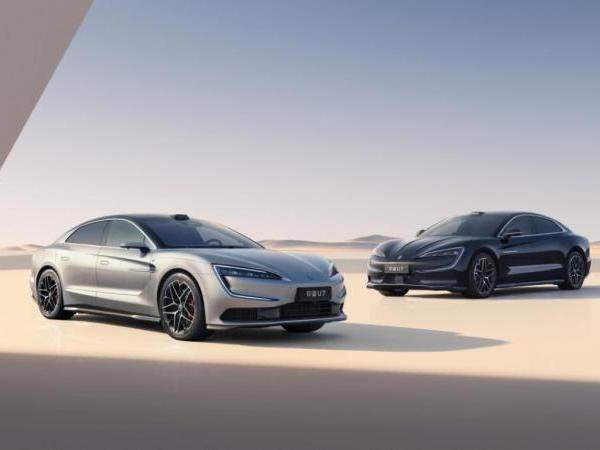
BYD YANGWANG U7 Launches with World's First Suspension Charging Tech
[PCauto] On March 27, BYD YANGWANG U7 was launched, with two power versions of pure electric and plug-in hybrid, a total of four models. YANGWANG U7 EV Five-seater Luxury Edition, priced at about 292.85 million baht/RM38.31 YANGWANG U7 EV Four-seater Flagship Edition, priced at about 330.04 million baht/RM43.19 YANGWANG U7 PHEV Five-seater Luxury Edition, priced at about 292.85 million baht/RM38.31 YANGWANG U7 PHEV Four-seater Flagship Edition, priced at about 330.04 million bah
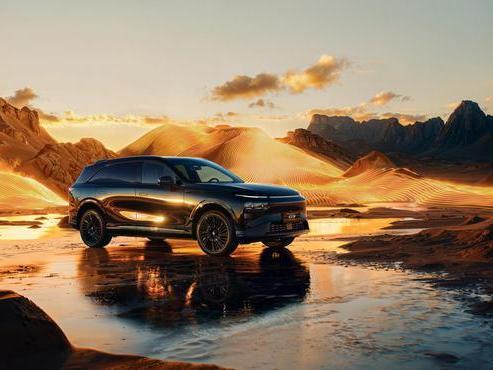
XPENG G9 is about to be launched in China, bringing 66 upgrades in features
【PCauto】XPENG has recently announced that the 2025 XPENG G9 will soon be launched in China. Although the official did not announce the time and price, the success of XPENG G6 and X9 has rekindled expectations for the once-failed G9 by XPENG. In terms of appearance, the G9 continues the X-BOT FACE 3.0 design language, with a closed grill at the front paired with split-style headlights on both sides, new two-tone collision colors and all-black body styles, with a petal-style wheel hub. Combining
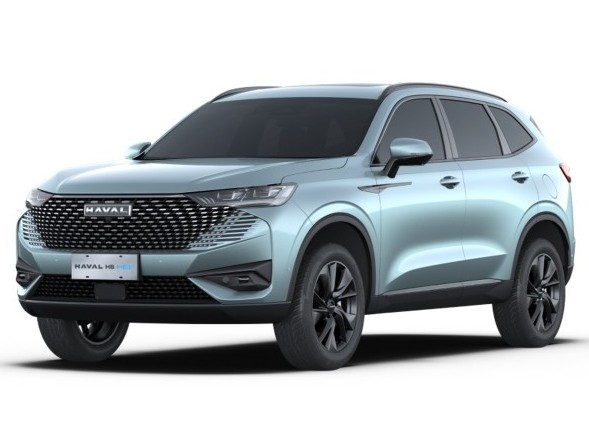
HAVAL H6: A Balanced Performer and a Reliable Choice for Family SUVs
Price of HAVAL H6HAVAL H6 has a total of 1 submodel.• 2024 HAVAL H6 HEV priced at RM 139,800Driving experience of the HAVAL H6As for the power, the HAVAL H6 is equipped with a 1.5L 4-cylinder turbocharging source, delivering a maximum power output of 110 kW and a peak torque of 230 N·M, with maximum torque available at 1500-4000 rpm. The power is transmitted to the Front Wheel via an AT transmission, achieving a combined fuel consumption of 5.8 L/100km. This p

Toyota Expands PHEV Lineup with Crown Estate Launching in Japan
【PCauto】Toyota has launched the new Crown Estate model in Japan. The Estate is the fourth model in the Crown series, and a plug-in hybrid version is also available.The Crown Estate combines design elements of station wagons and SUVs. It's built on the TNGA-K platform and has elegant body lines and spacious interior space. The vehicle's exterior design is exquisite, with the iconic hammerhead front face paired with large-size alloy wheels, showing the temperament of the Crown. In terms of body si
Popular Cars
Car Compare

